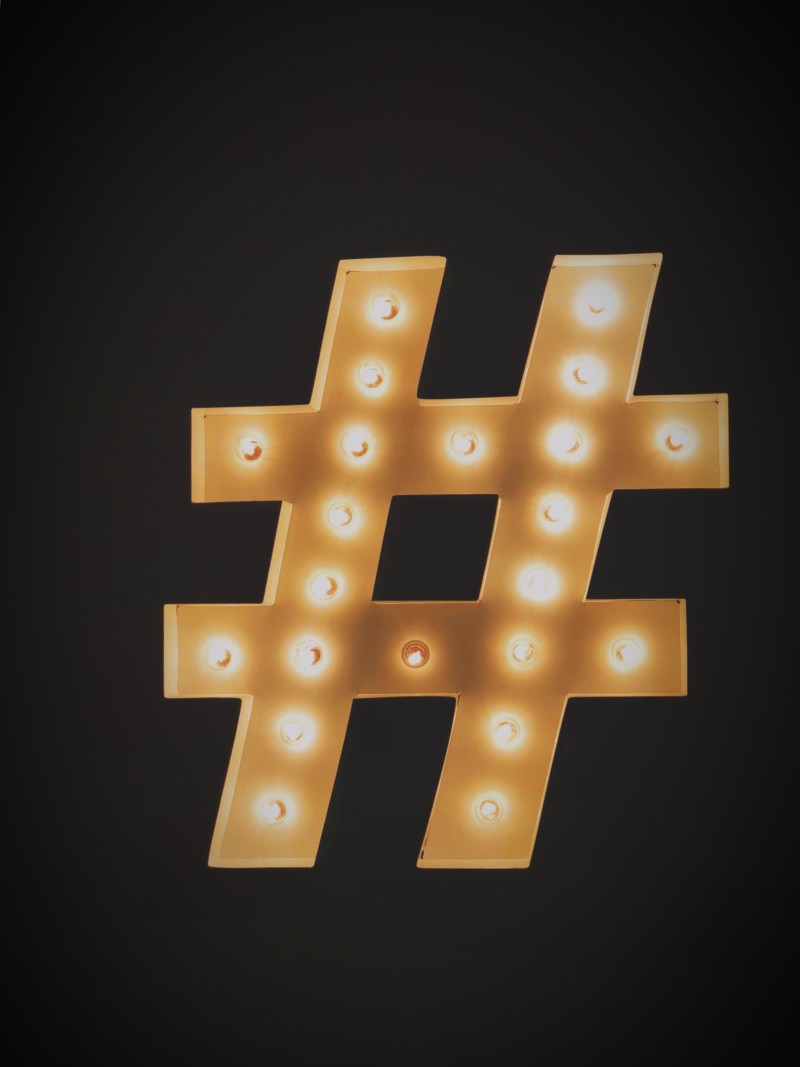No longer limited to social media, hashtags seem to be everywhere. With this ubiquity come questions about whether hashtags can be protected from use by competitors, as well as whether a hashtag can subject a user to liability for trademark infringement.
As you may already know, a hashtag is a word or a phrase preceded by a “hash mark,” also known as the pound sign (#). Using a hashtag in a social media post allows all posts with the same hashtag to be saved in one virtual location.
More importantly for trademark purposes, though, hashtags are now used by most businesses and nonprofit organizations in connection with their branding.
The US Patent and Trademark Office (USPTO) and US courts have repeatedly stated that a hashtag is capable of protection and registration as a trademark when the mark after the # functions as an identifier of the source of goods or services, not merely as a description.
In light of this, trademark owners should review their trademarks to determine whether it would be appropriate to seek any hashtag registrations or whether it might be better to register only the underlying word or phrase without the # symbol.
Further, you should be careful about using any hashtag commercially, since someone else may be claiming that hashtag as a trademark.
Although the law on this issue is unsettled, a number of cases have found that use of a hashtag can constitute trademark infringement. In fact, just last month a federal court in California granted a preliminary injunction banning a company from using its competitor’s hashtag.
Align Technology makes Invisalign products for teeth straightening. To create the Invisalign trays, orthodontists use an iTero Element scanner to take pictures of the inside of the patient’s mouth. A disposable sleeve covers the imaging wand that goes into the patient’s mouth. Align makes and sells the iTero Element scanners and the disposable sleeves.
Strauss Diamond Instruments makes a MagicSleeve product, which can be used on the iTero Element scanner. In its advertising and social media, Strauss showed images of its MagicSleeve being used along with statements about the MagicSleeve and several hashtags, including “#invisalign” and “#itero. Invisalign and iTero are Align trademarks.
Align sued Strauss for, among other things, trademark infringement. Strauss argued the “nominative fair use” defense.
According to the court, this defense requires the defendant to prove that the product isn’t readily identifiable without the trademark; that it used only so much of the mark as was reasonably necessary to identify the product; and that it did not do anything that would suggest the trademark owner’s sponsorship or endorsement of the defendant’s own products.
After considering the facts of the case, the court held that Strauss’s use of Align’s trademarks as hashtags did not qualify as nominative fair use. The court held that in some cases, Strauss was actually using the hashtags to refer to its own product, and even where that wasn’t the case, Strauss had used more of Align’s trademarks than was reasonably necessary to identify Align’s product.
The hashtags, said the court, “indicate a vague association between the term in the hashtag and the MagicSleeve” and none of them “perform an identification function.”
The court suggested that we imagine Strauss’s ad in one version with the Invisalign and iTero hashtags and one without, then pointed out that the version with the hashtags doesn’t better identify Strauss’s product, because the product identification comes from the picture of it being used and the sentences in the ads.
A global problem in all of Strauss’s ads that have hashtags that include Align’s marks is that in none of the ads do the hashtags serve any identification function; the use of the marks in the hashtags is never reasonably necessary to identify the MagicSleeve. You would have to imagine a pretty terrible ad for the hashtags to do any identifying – maybe just a picture of the MagicSleeve with no illustration or text explaining what it is for, leaving the viewer to wonder if he should put it on his finger to do the dishes, wear it for protection when sewing, or what other use is contemplated. In that case, perhaps #iteroscanner would make him realize, “oh, this is for my dentist to use on an iTero scanner.” But none of the ads are like that.
The court then went on to determine that Strauss’s use of Align’s trademarks was likely to cause a reasonable person to “be confused into thinking that Align has endorsed or sponsored, or given its approval or authorization for, the MagicSleeve.”
Please feel free to contact us if you have any questions about hashtags as trademarks or if you need any assistance choosing, registering or enforcing your trademarks.
Photo by Jon Tyson Photography on Unsplash






